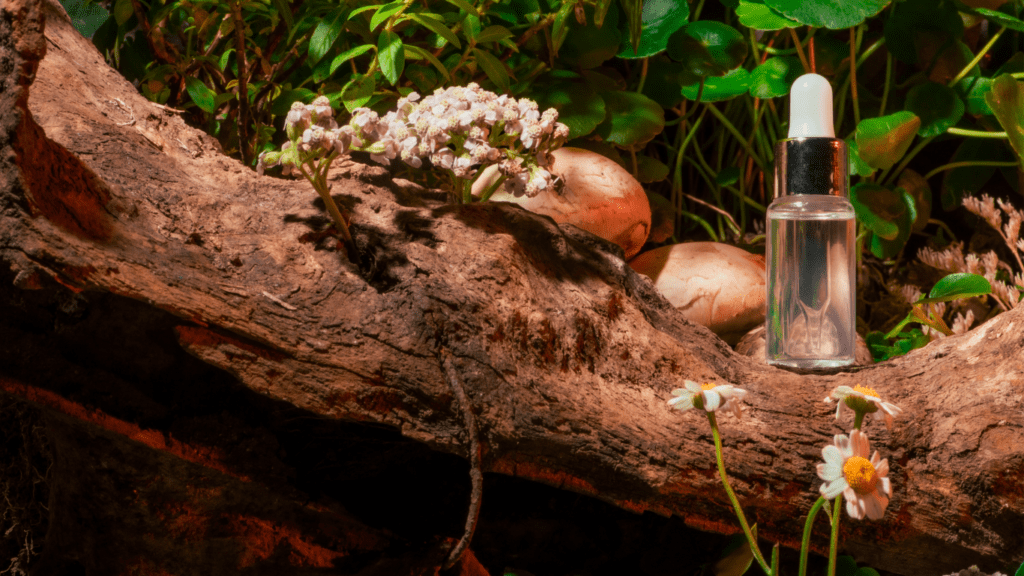Understanding Natural Skincare
Natural skincare involves using products made from organically sourced and minimally processed ingredients. These products exclude synthetic chemicals, parabens, sulfates, and artificial fragrances. Unlike conventional products, natural alternatives focus on leveraging the benefits of nature’s bounty to nourish and protect the skin.
Common Ingredients in Natural Skincare
- Botanical Extracts: Ingredients like chamomile, aloe vera, and green tea extract help soothe and heal the skin. Chamomile reduces redness, aloe vera offers hydration, and green tea extract provides antioxidant protection.
- Essential Oils: Oils such as lavender, tea tree, and rosehip have anti-inflammatory and antimicrobial properties. Lavender calms irritation, tea tree fights acne, and rosehip promotes skin regeneration.
- Natural Butters: Shea butter, cocoa butter, and mango butter offer deep moisturization. Shea butter soothes dryness, cocoa butter enhances elasticity, and mango butter provides essential vitamins.
Benefits of Natural Skincare
- Fewer Irritations: Due to the absence of harsh chemicals, natural skincare products often result in fewer skin irritations, making them suitable for sensitive skin.
- Rich in Nutrients: These products are rich in vitamins and antioxidants that promote healthier skin. Ingredients like vitamin C, E, and beta-carotene repair and rejuvenate the skin.
- Eco-Friendly: Natural skincare products are often sustainably sourced and biodegradable, making them an eco-friendly choice.
Key Considerations
When switching to natural skincare, it’s essential to check ingredient labels for authenticity. Some products may falsely advertise being “natural.” Look for certifications or verify the source of ingredients to ensure quality. Also, remember that natural products may have a shorter shelf life due to the absence of preservatives.
Natural skincare’s holistic approach appeals to those seeking gentle, nutrient-rich, eco-conscious beauty solutions. By understanding what defines natural skincare, individuals can make informed choices that benefit their skin and the environment.
Key Benefits of Natural Skincare
Choosing natural skincare products offers numerous advantages for both skin health and the environment.
Avoiding Harmful Chemicals
Natural skincare products exclude synthetic ingredients and harmful chemicals. Conventional skincare often contains parabens, sulfates, and phthalates, which may cause skin irritations or hormonal disruptions. By opting for natural alternatives, I can reduce exposure to these chemicals. For instance, products with essential oils or plant-based preservatives provide effective, gentle care.
Rich in Nutrients
Natural skincare is rich in vitamins, minerals, and antioxidants, benefiting the skin. Ingredients like shea butter, jojoba oil, and aloe vera deliver nutrients that nourish and rejuvenate the skin. These components enhance skin’s texture and appearance. When I use natural products, I know I am giving my skin essential nutrients for optimal health.
Environmentally Friendly
Natural skincare products not only benefit the skin but also the environment. These products use sustainably sourced ingredients and eco-friendly packaging. Traditional skincare products often contain microplastics and chemicals that harm marine life. By choosing natural skincare, I contribute to a more sustainable and environmentally friendly beauty routine, reducing my ecological footprint.
Common Ingredients in Natural Skincare Products
Natural skincare products often contain a variety of ingredients derived from nature. These ingredients offer multiple benefits, ensuring skin health and well-being while avoiding synthetic additives.
Essential Oils
Essential oils in skincare provide numerous benefits. Lavender oil, for instance, soothes and reduces inflammation, while tea tree oil combats acne with its antibacterial properties. Rosehip oil, rich in vitamins A and C, rejuvenates and hydrates the skin. Natural skincare products utilize these oils for their healing benefits and pleasant scents.
Plant Extracts
Plant extracts deliver potent nutrients and antioxidants. Green tea extract, loaded with polyphenols, protects the skin from free radicals. Aloe vera extract hydrates and heals, reducing redness and irritation. Chamomile extract soothes sensitive skin. These extracts enhance product efficacy without harsh chemicals.
Natural Preservatives
Natural preservatives ensure product longevity without synthetic additives. Vitamin E, an antioxidant, prevents oils from oxidizing. Rosemary extract fights off bacteria and mold. Grapefruit seed extract offers antimicrobial properties. These preservatives maintain the product’s integrity while ensuring safety.
Potential Drawbacks of Natural Skincare

While switching to natural skincare offers numerous benefits, it’s not without potential drawbacks.
Higher Costs
Natural skincare products often come with higher price tags compared to their synthetic counterparts. The use of organic, high-quality ingredients raises production costs, which are passed on to consumers. Brands sourcing ingredients sustainably and ethically also incur additional expenses. For example, cold-pressed oils and hand-harvested botanical extracts require more intensive labor and specialized equipment. Although the investment in natural skincare can be worthwhile, it’s essential to consider budget constraints when making the switch.
Limited Shelf Life
Natural skincare products have a shorter shelf life due to the absence of synthetic preservatives. Ingredients like vitamin E, rosemary extract, and grapefruit seed extract are effective but can’t match the longevity of synthetic alternatives.
This reduced shelf life means products may spoil faster, requiring more frequent replacement. Storing these products in cool, dry places can help extend their usability, but users need to check expiration dates regularly to ensure product safety and efficacy.
If not properly stored, natural ingredients can lose potency or become contaminated, impacting overall skincare results.
Tips for Transitioning to Natural Skincare
Switching to natural skincare can be a rewarding journey. A few strategic steps can make the transition smooth and efficient.
Gradual Replacement
Replace conventional products gradually with natural alternatives. Start with one or two products at a time, like cleanser and moisturizer. This approach helps your skin adapt without overwhelming it. Gradual changes also make it easier to identify if a particular product doesn’t suit your skin.
Reading Labels
Reading product labels ensures you’re choosing genuine natural products. Look for ingredients like botanical extracts, essential oils, and natural preservatives. Avoid products containing synthetic fragrances, parabens, and sulfates. Familiarize yourself with common natural ingredients and their benefits to make informed decisions.
Patch Testing
Patch testing prevents adverse reactions from new products. Apply a small amount to a discreet area, such as behind the ear or on the wrist. Wait 24-48 hours to observe any reaction. This step is crucial, especially if you have sensitive skin, as it helps identify potential allergens before applying the product to your face or body.




